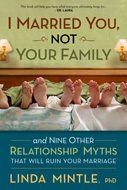 Yesterday I was talking on a national radio show about anxiety. We had call ins the entire hour. People wanted to know more about anxiety and how to treat it.
Yesterday I was talking on a national radio show about anxiety. We had call ins the entire hour. People wanted to know more about anxiety and how to treat it.
If you struggle with anxiety, you join 29% of the population that will have an anxiety disorder during their lifetime. Anxiety is also a presenting symptom 10% of the time people visit their physician and a much higher percent of complaints people bring to their doctors. So anxiety is prevalent and the basis of many physical and emotional issues. Anxiety is a symptom with complexity.
It is that uneasy feeling, apprehension, feeling of danger, doom or misfortune. It can be debilitating or mild. Anxiety can spawn fear, worry, and stress.
Anxiety is generally caused by three factors:
1) Genetics: Some people are more prone to anxiety and it runs in families.
2) Epigenetic factors: This means that circumstances can pull the genetic trigger on anxiety–stress, health, environment, drugs, and other triggers that become activated. For example, abuse, abandonment and stressful issues of childhood can bring on anxiety. Current stress such as job loss, death of a spouse or divorce can pull the trigger.
3) Choices: This in the one factor over which you have the most control. For example, smoking raises anxiety, not taking care of yourself, making poor financial choices, etc.
If left untreated, anxiety can become one of the following disorders:
1) Simple phobia–the most common anxiety disorder is an excessive , persistent anxiety of specific objects
2) Social anxiety disorder--anxiety around social functioning
3) Generalized anxiety disorder--an overall feeling of being anxious that seems general
4) Obsessive-compulsive disorder--recurrent, unwanted thoughts and actions
5) Post traumatic stress disorder–re-experiencing thoughts, acute anxiety from a traumatic experience
6) Panic disorder–feelings of panic as if you will die or something terrible will happen to you
7) Adjustment reaction anxiety--anxiety related to an acute stressor
8) Anxiety secondary to a medical condition–medically induced
Specific therapies are recommended to treat anxiety as well as approved medications. If you struggle with anxiety, there is help and hope.
Click on this link for more about anti-anxiety medications:
Is it wrong to take anti-anxiety medications?


